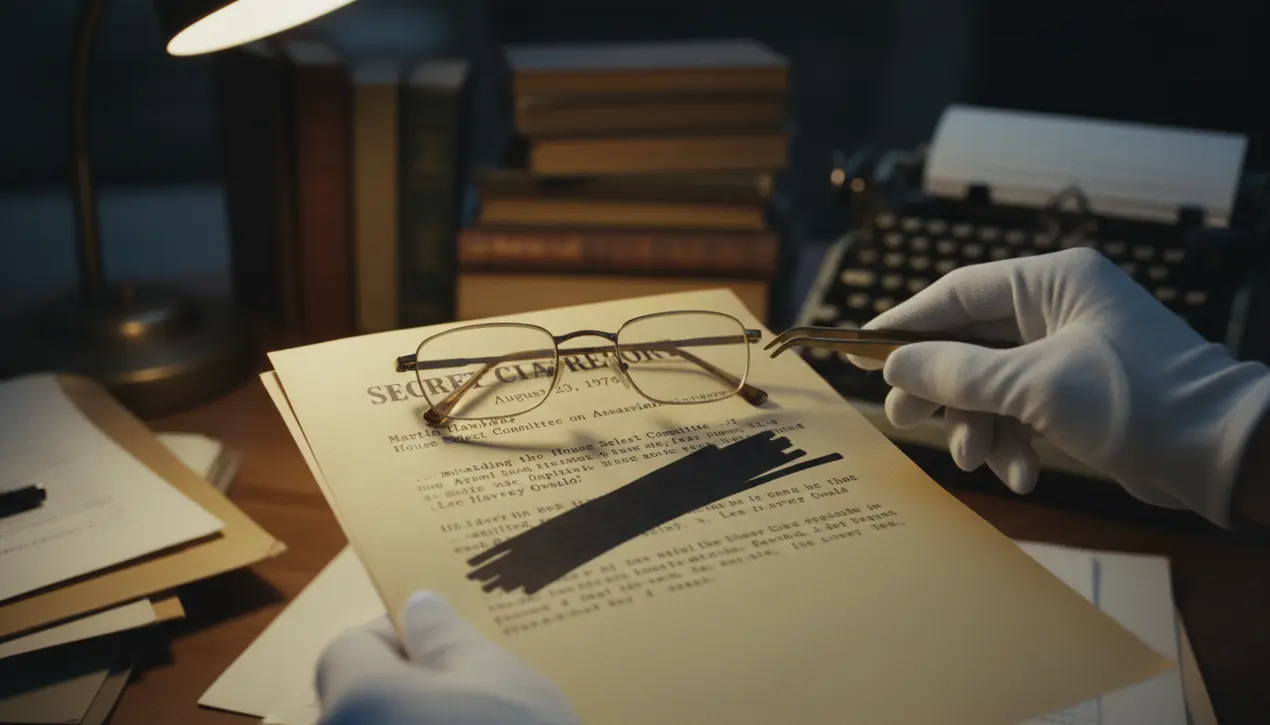
Politicscorruption & scandalsWhistleblower Reports
Secret CIA report boasted about tricking Congress in JFK probe.
RO
Robert Hayes
2 hours ago7 min read
A newly surfaced allegation from a CIA whistleblower reveals a stunning historical breach of democratic oversight, one that strikes at the very foundation of congressional authority. Thomas L.Pearcy, a former joint historian for the CIA and State Department, has stepped forward to describe a secret, nearly 50-page inspector general's report he encountered in 2009. Within this document, he claims, was a memo from August 23, 1978, in which a CIA officer, Martin Hawkins, openly boasted about successfully misleading the House Select Committee on Assassinations (HSCA).The specific deception involved the agency's presentation of sanitized, duplicate versions of its three-volume investigative files from the Mexico City Station—files critical to understanding Lee Harvey Oswald's activities in the weeks preceding President Kennedy's assassination. This was not a simple bureaucratic omission but a deliberate act of obfuscation, a calculated effort to present HSCA chief counsel Robert Blakey with a curated narrative, stripping away documents the agency deemed too sensitive for congressional eyes.The brazen nature of the memo, which reportedly derided Blakey as 'incurious' for not questioning the evidently redacted material, paints a picture of an intelligence apparatus operating with a disconcerting level of impunity, treating its oversight body not as a partner in truth-seeking but as an adversary to be managed. This revelation must be contextualized within the long, tortuous history of the JFK assassination records, a saga marked by persistent delays, broken promises, and institutional resistance.The JFK Records Act of 1992 was a landmark piece of legislation designed to force transparency, mandating the full disclosure of all related documents by 2017—a deadline that has been consistently missed, creating a fertile ground for enduring conspiracy theories and public mistrust. The case of George Johannides, the CIA agent who monitored Oswald and later misled the same HSCA, as tacitly admitted by the agency just this past July, establishes a pattern of behavior that Pearcy's account powerfully reinforces.It suggests that the obstruction was not the work of a few rogue actors but was, at least in part, a systemic practice. The political dimension adds another layer of complexity.President Trump's pledge to disclose all records, following an earlier executive order that itself unearthed new FBI files, has created a shifting landscape for whistleblowers like Pearcy, who felt safer coming forward under an administration perceived as less zealous in prosecuting unauthorized disclosures. The document in question, identifiable by a specific alpha-numeric locator, should, in theory, be easily retrievable by the CIA, raising urgent questions about what other truths remain locked away.For historians like Jefferson Morley, who has long championed transparency through his 'JFK Facts' work, this is not merely about a sixty-year-old tragedy; it is a live test of the government's commitment to historical accountability and its duty to the American people. The braggadocio captured in that 1978 memo is more than a historical footnote; it is a chilling blueprint of how power can subvert democracy when oversight is evaded and the truth is treated as a classified commodity.
#CIA
#JFK assassination
#whistleblower
#cover-up
#Congress
#Oswald
#Mexico City
#featured
Stay Informed. Act Smarter.
Get weekly highlights, major headlines, and expert insights — then put your knowledge to work in our live prediction markets.
Comments
Loading comments...
© 2025 Outpoll Service LTD. All rights reserved.